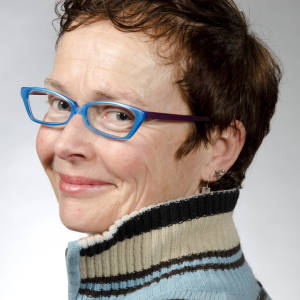100 years ago today
Dad shared on facebook that my Granddad (known as Granddad Boo) enlisted 100 years ago today (17/09/2016) in the 2nd Wellington Infanntry Regiment of NZEF, Band Company and Signal Section. After 5 months training he left for the UK on the SS Navua. On 20/9/1917 he was in the front line.
My brother added in more facts. Granddad's height was 5' 7 1/2" (1.7145m), weight 161lbs (73kgs). After 358 days of training and travel he arrived at the Etaples Camp known as the Bull Ring (80kms from front line) whilst a NZ lead mutiny was in full progress.
This is a very tough training camp with up to 100,000 Allied troops camped in the area either held in reserve or in training at any one time. Over the 1914 to 1918 war, 10,000 troops died in this camp during training through ill health or accident. He only stayed 8 days rather than the normal 14 days.
At the age of 22 and 368 days after enlisting on 20/9/1917 he was posted to 2nd Wellington Infantry Regiment in the battle field - The NZ Division spent all of September 1917 in the Lumbres training area near St Omer behind the lines. His actual front line duty is unknown but as the NZ Army was involved in the 1st Battle of Passchendaele between 31/7/1917 and 18/11/2017, he would have seen front line action as a signaller. Four other NZ Pearce men lost their lives during that battle - probably relatives known to Grandad Boo.
Today I've shown some of the things I have from WW1. The Record of War Service is on Granddad's certificate from WW1. The cards and silk hanky he sent from France to his mother. On the back of the 'Kiss from France' card is written "We are at the school now for a while again. We are on a pretty good job now as we don't go in the line". I guess that was reassuring to his parents who likely had no idea what was going on.
The shrapnel is from the Fields of Flanders. My brother and sister in law traveled there a few years ago and brought some home with them. Farmers in the Western Front area of France still find shrapnel today.
Granddad was a ploughman in the Gisborne district of the North Island. I guess enlisting was a mix of duty and an opportunity to have an adventure and travel. We know a little of what a Signallers life was like.
One of the jobs of an Allied Signaller was to accompany and engineer out across no mans land during the night to set up observation posts (pits) where they could monitor the tunneling that was going on from both sides under their respective trench systems.
It was a very dangerous job- crawling out in darkness through barbed wire heading towards the German trenches with just 1 mate and no cover from enemy fire other than darkness. He would have had to drag a roll of wire so they could morse code back to the trenches on what they observed. The Allied and German tranches were only not very far apart - 45 to 230m.
My aunt commented today that my Granddad did tell her a bit about his night excursions on signalling duties. It's amazing he lived to tell the stories. In WW2 he was a signaller on Motutapu Is in the Hauraki Gulf, Auckland.
And finally Dad emailed me the following about Granddad.
"I wonder how the transition from ploughman to signaller took place. I suppose the army had a need for signallers and just put recruits where needed.
Then I wonder why he never went into Post Office after the war having learnt telephones and communications etc during the war. Instead somehow he got into engineering and studied and sat exams to be in charge of steam boilers and machinery.
In WW2 and he became a signaller again with Morse code and radio and flags. He taught me how to use flags for Boy Scouts. After WW2 he got away from steam and studied refrigeration and ended up running Ammonia gas recovery plant at Auckland Gas. Ammonia was a by product of making coal gas and in those days used as a refrigerant with heavy clumsy machinery. Now replaced by Freon and later more friendly gases. He really had a thirst for knowledge and skills".
We'll never know as much as we'd like to about my Granddad Boo, Alfred James Pearce. We do know he was brave and he served his country as thousands of young men on both sides did. He loved his family and did his best to lead a normal life back in the NZ after WW1.
100 years on Granddad your 3rd granddaughter salutes you.
Thanks to my brother Stephen, Dad, and my aunt Fay for their words I've used today's blip.
- 5
- 1
- Fujifilm X10
- 1/125
- f/3.2
- 8mm
- 200

Comments
Sign in or get an account to comment.


